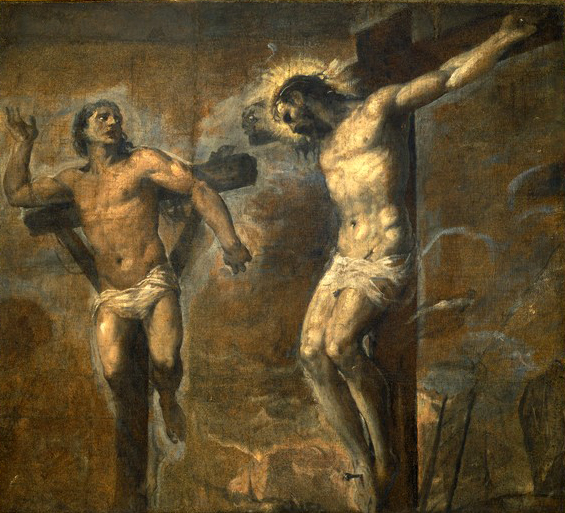Haydn, Seven Last Words

The Seven Last Words spoken by Christ on the Cross come from the four Gospels. Three are reported in the Gospel of John and another three in the Gospel of Luke. The seventh appears in both Matthew and Mark.
Numerous authors and composers have been inspired to build meditations around these sayings. Haydn’s Seven Last Words (Die sieben letzten Worte unseres Erlösers am Kreuze) was commissioned for the Good Friday service at the Oratorio de la Santa Cueva in Cádiz, Spain. Originally written in 1786 as a set of orchestral meditations, Haydn later created other versions for string quartet, choir with orchestral accompaniment, and piano solo. The string quartet version tends to be the most frequently performed.
In the video featured here, Patrick Dupré Quigley, director of the choral ensemble Seraphic Fire, has combined the choral and string quartet versions.
The works consists of seven sonatas, each built around one of the sayings, plus an introduction and a finale entitled Il terremoto (Earthquake). All of the movements, with the exception of the earthquake, are set in a slow tempo. The second sonata, Fürwahr, ich sag es dir, sets the text “Truly, I say unto you: today you will be with me in Paradise.”
The text for the choral version was written by Gottfried van Swieten, who would go on to collaborate with Haydn on the oratorios The Creation and The Seasons. The full text and English translation can be found here.



